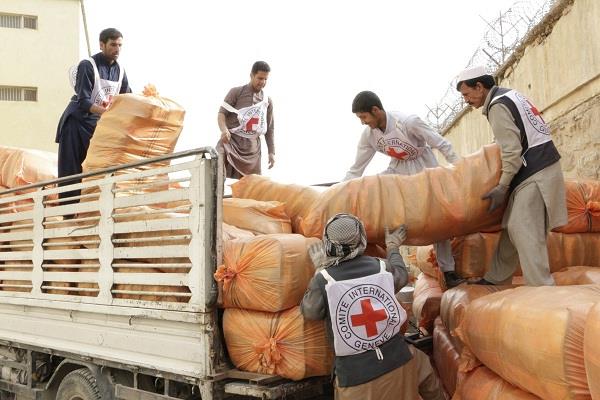
Red Cross Chief: Operations in Afghanistan and Iraq are Underfunded
(MENAFN- Afghanistan Times) AT Monitoring Desk
KABUL: International Committee of the Red Cross operations in Afghanistan and Iraq face a funding crisis because of the coronavirus pandemic, chief Peter Maurer said on Saturday.
Iraq faces a humanitarian crisis where more than 1.3 million people are displaced. More than 90 per cent of those have been so for more than three years, according to the ICRC.
Their future is uncertain as the government has started to close camps that house tens of thousands of people, including many who fled their homes during the final battle against ISIS in 2018.
'Their future remains an unanswered question. Time is not on our side – the longer it takes for people to achieve a safe and dignified return, the deeper divisions are entrenched and more difficult they are to repair,' Mr Maurer said during the annual International Institute for Strategic Studies summit in Bahrain.
ISIS upended the lives of millions of Iraqis in 2014 and imposed a rule that in places such as Mosul would last three years.
Mr Maurer said the shortfall in funding for ICRC's operations in Iraq and Afghanistan came at a time 'when we see people's needs are skyrocketing and economic crises are looming'.
The ICRC made an appeal for 2.3 billion Swiss Francs ($2.6bn) for 2021 to support its work for people affected by armed conflict.
Both Iraq and Afghanistan fall under ICRC's top 10 largest operations.
For Iraq, the humanitarian body needed $123.8 million and in Afghanistan, it need $88.5m to continue its operations.
'Laying the groundwork for stabilisation, humanitarian work remains severely underfunded,' Mr Maurer said.
To add to their worries, the outbreak of coronavirus has seen some 'donor states reallocate funds to domestic issues', he said.
Mr Maurer said those affected by wars and conflicts were 'exhausted with the years of violence and they describe wars fought without mercy or humanity".
The ICRC's mission is to assist those affected by conflict and to promote laws that protect victims of war. Alongside providing healthcare in emergencies, it also monitors conditions in detention centres and helps to reunite families displaced by conflict.
'We can create an environment for peacebuilding, but it's a fundamental political issue,' he said.
Mr Maurer said all signs today pointed to chronic instability whereby global and regional power competitions are unresolved, meaning reconstruction is slow or not happening at all.
'We urge you to keep human security as your focus – without it we risk chronic instability and cycles of violence without an end,' he said.
'Our experience over decades tells us that a focus on security without a focus on the human dimension of conflict is in fact no security at all."
Instead, Mr Maurer proposed that states must take a 're-energised partnership of engagement' with the international community to work together and 'turn the tide'.

Legal Disclaimer:
MENAFN provides the
information “as is” without warranty of any kind. We do not accept
any responsibility or liability for the accuracy, content, images,
videos, licenses, completeness, legality, or reliability of the information
contained in this article. If you have any complaints or copyright
issues related to this article, kindly contact the provider above.















Comments
No comment